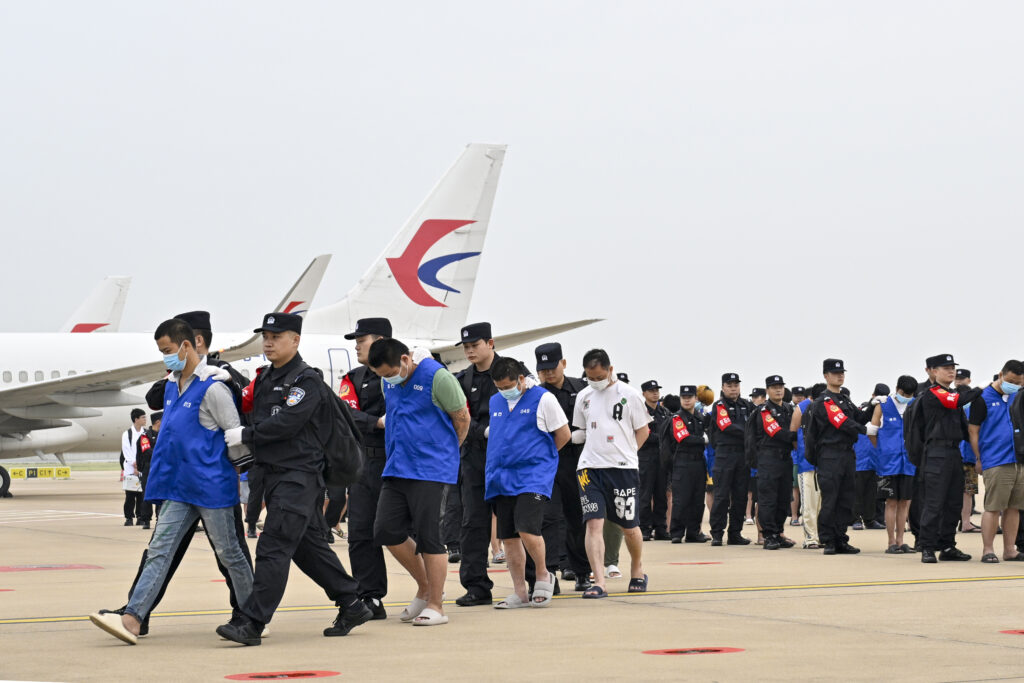There is considerable uncertainty in Southeast Asia regarding what a resurgent China means for the region. Over the past four decades, the once impoverished communist country has emerged as the world’s second-largest economy, transforming the image of Chinese people from famine-stricken to major consumers and investors. Due to the immense size of the Chinese economy, its vast population and its enigmatic authoritarian government, China’s intentions towards the region remain a significant question mark for Southeast Asian countries.
Debates abound within Southeast Asia regarding the implications of this resurgence of a historical hegemon for the region. This is primarily due to the deep, historical interconnectedness between China and Southeast Asia, established through tribute, trade and migration. Uncertainty stems from a lack of consensus on the nature of the great power China represents and may become. Some suggest that China is the celestial kingdom of the past, seeking to reassert its former tributary relations with Southeast Asia, while others worry it will resemble the colonial powers of the imperial West, which seized control of the region, plundered resources and enslaved people.
Others wonder whether the Chinese government and its Communist Party will repeat their revolutionary past by exporting communist ideologies and an authoritarian system to the region, or if Beijing is primarily interested in economic development and fostering further regional economic interdependence. Southeast Asia as a region must address the challenges posed by a neighbour that is both enormous and complex.
This situation arose for two primary reasons. First, the contemporary People’s Republic of China is a complex great power in the sense that despite its colossal economic and military power, the country is populous, diverse, still in the developing stage and full of contradictions. Additionally, China has complex historical relations with Southeast Asia through centuries of economic and political interactions, with a long history of Chinese migration to the region. China’s reception in the region is varied, conditioned by historical relations as well as contemporary encounters with a variety of actors from China.
Second, we have to differentiate between the intended and unintended consequences of China’s presence in Southeast Asia, particularly when we want to understand what kind of ‘influence’ China wields in the region. The Chinese state intends for some of its policies or actions to cause deep repercussions in Southeast Asia. But we must also consider the unintended consequences of a variety of Chinese actors to fully comprehend the nature of interactions between China and Southeast Asia.
The substantial impact of Chinese non-state actors on state–society relations in Southeast Asia also affects state-to-state relations. This focus on non-state actors complements the extensive body of literature that has already studied China–Southeast Asia relations from a state perspective, while importantly shifting gears to investigate the complex nature of diverse non-state actors from China, which hold significant implications for Southeast Asia. Sociological theories of ‘unintended consequences of purposive social action’ demonstrate how intentionality, or the absence thereof, is crucial to understanding the nature of China’s presence in the region.
The Chinese state has been more explicitly involved in trying to influence Southeast Asia, with a specific focus on authoritarian regime durability in the region, economic relations and China’s promotion of Chinese language and culture. Non-state actors from China also impact Southeast Asia. For example, Chinese consumption demand has generated an agricultural transformation in the region. Other non-state actors include the Chinese illicit economy in Southeast Asia, the influence of outbound migration from China and the socio-economic impact on host societies in Southeast Asia. Additionally, China’s diaspora governance policies have affected its historical and contemporary relations with Southeast Asia.
For instance, the illicit economy includes the recent growth of the online casino economy, which has been deeply tied with Chinese capital looking for investment opportunities in Southeast Asia. Closely associated are the online scammers that specifically target ethnic Chinese communities across national boundaries. The lack of state regulation and capacity, as well as rampant corruption in the region, have facilitated the growth of these illicit activities by Chinese criminal networks.
Understanding China’s influence through the lens of intentionality or lack thereof is essential to understanding China’s relations with Southeast Asia. This approach allows for a fuller understanding of the complex network of state-affiliated and private entities that shape China’s actions in the region.
Enze Han is Associate Professor in the Department of Politics and Public Administration at the University of Hong Kong. This piece is based on his recent book The Ripple Effect: China’s Complex Presence in Southeast Asia.


Unfortunately you did not address the elephant the room. The Chinese communist party pushing their way onto democratically elected countries. Hong Kong was not a good example.
China is a large economy and huge population. It is a major international threat to all its neighbours. It has committed to invading Taiwan and aggressively challenges all its neighbours in the south China Sea. It is clear that the CCPcan not be trusted. Australia foolishly is to depend on China’s economy and the balance of trade put Australia at high risk. This is very dangerous and short sighted. We need to develop our economy and move away from China rapidly. They are not the friend or responsible trading partner we need for the future.